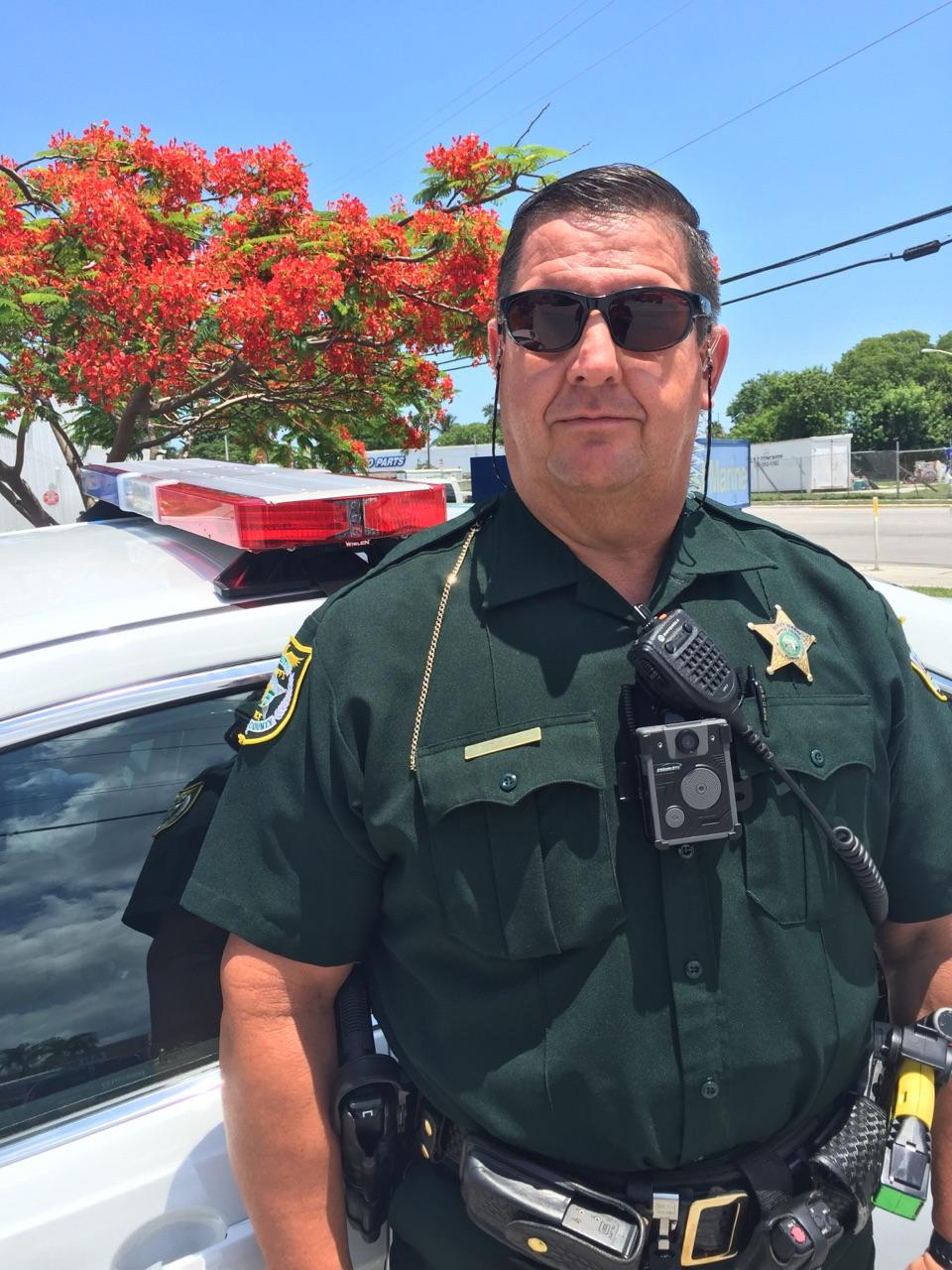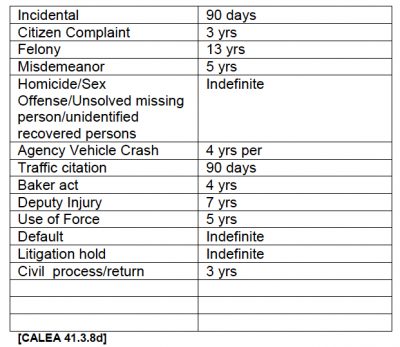Sheriff’s Office Begins Using Body Worn Cameras

The Sheriff’s Office began using body worn cameras on Monday. Most uniformed deputies will be required to wear the cameras as a routine part of their uniform. All members who will be using the cameras completed their training last week.
The Sheriff’s policy requires they be worn by road patrol deputies and sergeants, school resource deputies, civil deputies, traffic deputies, airport deputies and sergeants and detectives when they are in uniform. Detectives may also wear them when in plain clothes.
“We are confident these cameras will help to enhance deputy safety and trust between the community and the agency,” said Sheriff Rick Ramsay. “Having video and audio recordings of our interactions with the public can only help us when it comes to our interactions with people in the field. It will reassure the public and our officers that we are open, honest and professional in the way we deal with people on a day to day basis and, if we do have training issues we need to deal with, it will help us to identify those issues so we can take care of them quickly.”
The Sheriff’s Office has had in-car video cameras and body-worn microphones for years and the agency’s experience has been that having more information, and clear evidence, can only help when it comes to law enforcement.
“We have had many instances where video from our in-car cameras has served to clarify the way an incident unfolded,” said Sheriff Ramsay. “We expect the new body-worn cameras to simply enhance these benefits. Oftentimes having video of an incident helps to deescalate both sides of a confrontation,” he said.
Before putting the cameras in the field, the Sheriff’s Office Professional Standards Unit spent considerable time reviewing policies from other agencies and writing a comprehensive policy about the use of the cameras [see below].
The Sheriff’s Office Information Systems Division, working together with the Sheriff’s Training Unit put together a four-hour block of training which all officers must attend before using the cameras. The training addresses everything from the way the cameras should be worn to the content of the policy and the mechanics of the camera itself. The Information Systems Division is also charged with maintaining the cameras, computer equipment and the software that goes along with them.
The MCSO policy requires deputies to perform a camera function check at the beginning of each shift and to report immediately to their supervisor any malfunction found during testing or while in the field. With some exception, deputies are required to activate the cameras and continue recording both audio and visual throughout the incident when it involves direct interaction with the public.
Regarding retention of the audio visual files created by the body cameras, the Sheriff’s policy requires varying retention periods, sometimes indefinite, depending on the type of incident. [Florida Statute specifies only a minimum of 90 days, although other policies and considerations for example those involving potential litigation come into play, as is reflected by the MCSO retention schedule below.]
Key West Police Officers have been using body worn cameras, supplied by the Monroe County Sheriff’s Office, since late July of 2015. The KWPD body worn camera policy, established in May of 2015, is also shown below.
MONROE COUNTY SHERIFF’S OFFICE BODY WORN CAMERA POLICY:
[gview file=”https://thebluepaper.com/wp-content/uploads/Chapter-032-P-Body-Worn-Cameras.pdf” save=”1″]
KEY WEST POLICE DEPARTMENT BODY WORN CAMERA POLICY:
[gview file=”https://thebluepaper.com/wp-content/uploads/body-worn-camera-policy.pdf” save=”1″]
Florida Statutes Chapter 119
2. A body camera recording, or a portion thereof, is confidential and exempt from s. 119.07(1) and s. 24(a), Art. I of the State Constitution if the recording:
a. Is taken within the interior of a private residence;
b. Is taken within the interior of a facility that offers health care, mental health care, or social services; or
c. Is taken in a place that a reasonable person would expect to be private.
3. Notwithstanding subparagraph 2., a body camera recording may be disclosed by a law enforcement agency:
a. In furtherance of its official duties and responsibilities; or
b. To another governmental agency in the furtherance of its official duties and responsibilities.
4. A body camera recording, or a portion thereof, shall be disclosed by a law enforcement agency:
a. To a person recorded by a body camera; however, a law enforcement agency may disclose only those portions that are relevant to the person’s presence in the recording;
b. To the personal representative of a person recorded by a body camera; however, a law enforcement agency may disclose only those portions that are relevant to the represented person’s presence in the recording;
c. To a person not depicted in a body camera recording if the recording depicts a place in which the person lawfully resided, dwelled, or lodged at the time of the recording; however, a law enforcement agency may disclose only those portions that record the interior of such a place.
d. Pursuant to a court order.
(I) In addition to any other grounds the court may consider in determining whether to order that a body camera recording be disclosed, the court shall consider whether:
(A) Disclosure is necessary to advance a compelling interest;
(B) The recording contains information that is otherwise exempt or confidential and exempt under the law;
(C) The person requesting disclosure is seeking to obtain evidence to determine legal issues in a case in which the person is a party;
(D) Disclosure would reveal information regarding a person that is of a highly sensitive personal nature;
(E) Disclosure may harm the reputation or jeopardize the safety of a person depicted in the recording;
(F) Confidentiality is necessary to prevent a serious and imminent threat to the fair, impartial, and orderly administration of justice;
(G) The recording could be redacted to protect privacy interests; and
(H) There is good cause to disclose all or portions of a recording.
(II) In any proceeding regarding the disclosure of a body camera recording, the law enforcement agency that made the recording shall be given reasonable notice of hearings and shall be given an opportunity to participate.
5. A law enforcement agency must retain a body camera recording for at least 90 days.
6. The exemption provided in subparagraph 2. applies retroactively.
7. This exemption does not supersede any other public records exemption that existed before or is created after the effective date of this exemption. Those portions of a recording which are protected from disclosure by another public records exemption shall continue to be exempt or confidential and exempt.



